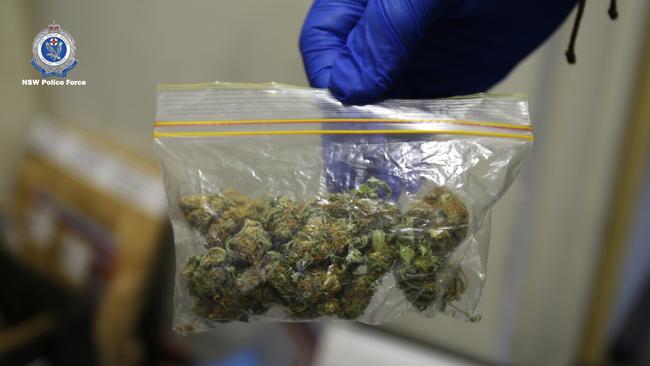Drug prices spike as criminal gangs work around lockdowns
Transnational organised crime groups are raking in higher profits as they ramp up the use of trucks, couriers and the postal service to move illicit drugs.

Transnational organised crime groups are raking in higher profits as they ramp up the use of trucks, couriers and the postal service to move illicit drugs and cash.
In a comprehensive analysis of Australian crime trends since the start of the pandemic, the NSW Crime Commission found gangs were adapting to border and travel restrictions and that there had been a concerning spike in the use of encrypted phones.
Retail or street-level prices for drugs were up beyond an increase in wholesale prices, while a reduced capacity to launder money has forced crime groups to stockpile cash, the commission says.
During one joint commission-NSW Police Force investigation, the price of methamphetamine or “ice” from a major NSW-based importer and supplier rose by over $100,000 a kilogram in a week.
“The increase in prices is believed to have contributed to higher Australian profits in the drug trade,” the commission says in a submission to a parliamentary inquiry into COVID-19 crime and law enforcement.
The pandemic has created challenges for law enforcement, but also opportunities from significant changes to the practices of organised crime groups (OCGs).
Traditionally these groups relied on “shore parties”, or people who travel to Australia specifically to receive and distribute drug importations and cash.
Shore parties were generally unknown to law enforcement, and even to some members of the groups themselves to help avoid attention and to prevent identification of others in the event of arrests.
“As a result of border closures and travel restrictions, OCGs have been forced to move away from the shore party model and recruit syndicate members or their associates who are already onshore in Australia,” the commission says.
“This poses a risk to the OCG because the anonymity provided by a traditional shore party is lost.”
Crime groups experienced “significant delays” for drug importations, due to disruptions to the supply chain in China and South East Asia.
COVID-19 restrictions in the region had made the movement of product to the ports more difficult, with delays then compounded by striking port workers in Sydney.
Large quantities of drugs and cash were reportedly being held in one jurisdiction because crime groups were incapable of safely moving them due to border restrictions.
Joint commission-NSW Police Force investigations had detected an increased use of interstate trucking and courier companies to transport drugs from Sydney to Adelaide, Perth, Melbourne and Brisbane.
“The commission assesses that this is directly related to the closure of the interstate borders and the fact that some transport companies secured travel ban exemptions,’’ the analysis says.
Huge cash seizures have been reported in Queensland, South Australia and Western Australia. Cash located in trucks driven interstate were mostly heading to Sydney.
“Anecdotally, the commission is aware of an increase in the use of domestic parcel post for the movement of drugs and cash between cities as fewer people have been able to fly or drive the products interstate themselves.”
In some cases investigations have been delayed because surveillance devices could not be deployed and coercive hearings could not be held with interstate witnesses.
At least one investigation was disrupted because law enforcement agents could not move across borders without raising suspicion.
With crime groups unable to travel internationally, they increasingly relied on specially modified encrypted phones, the most dominant being Ciphr. As many as 10,000 encrypted Ciphr phones are estimated to be in use nationwide.




To join the conversation, please log in. Don't have an account? Register
Join the conversation, you are commenting as Logout